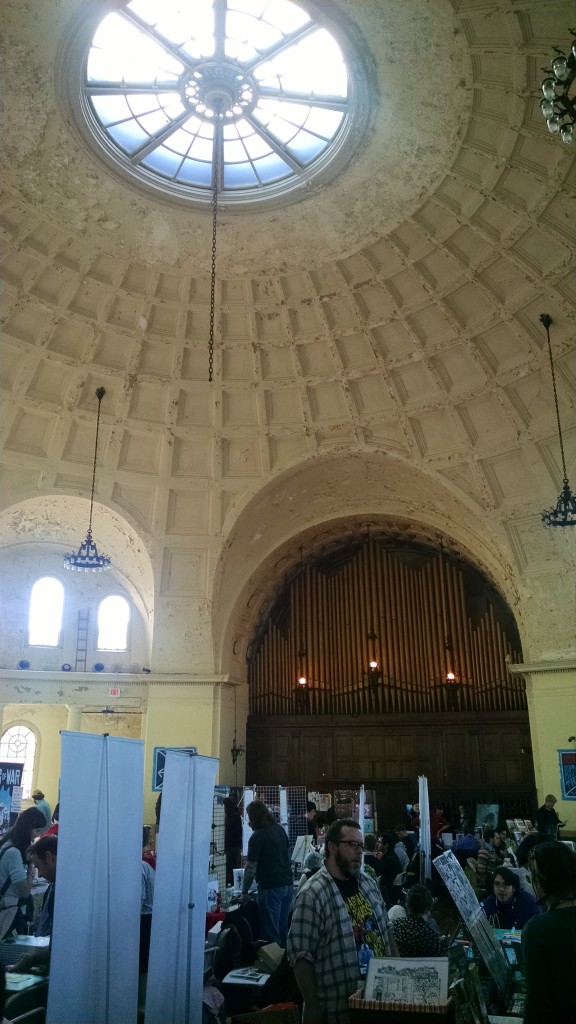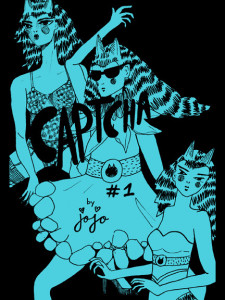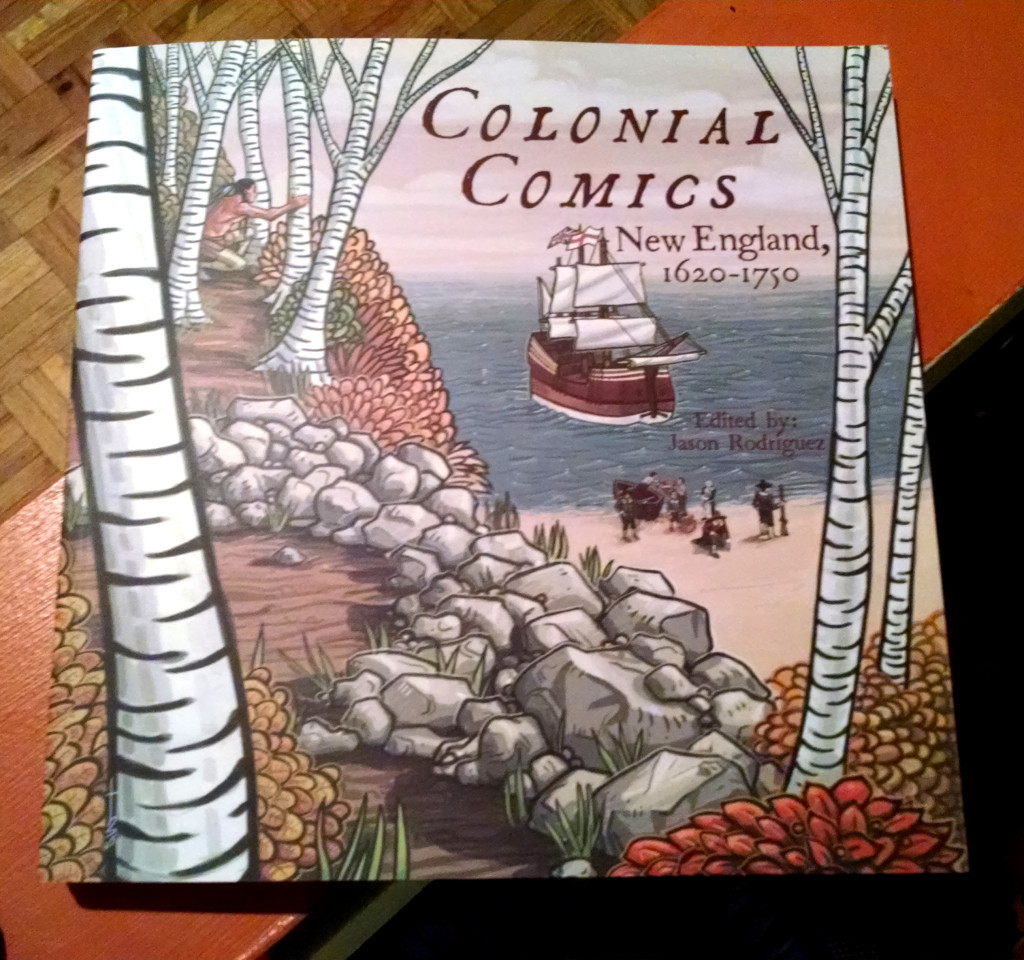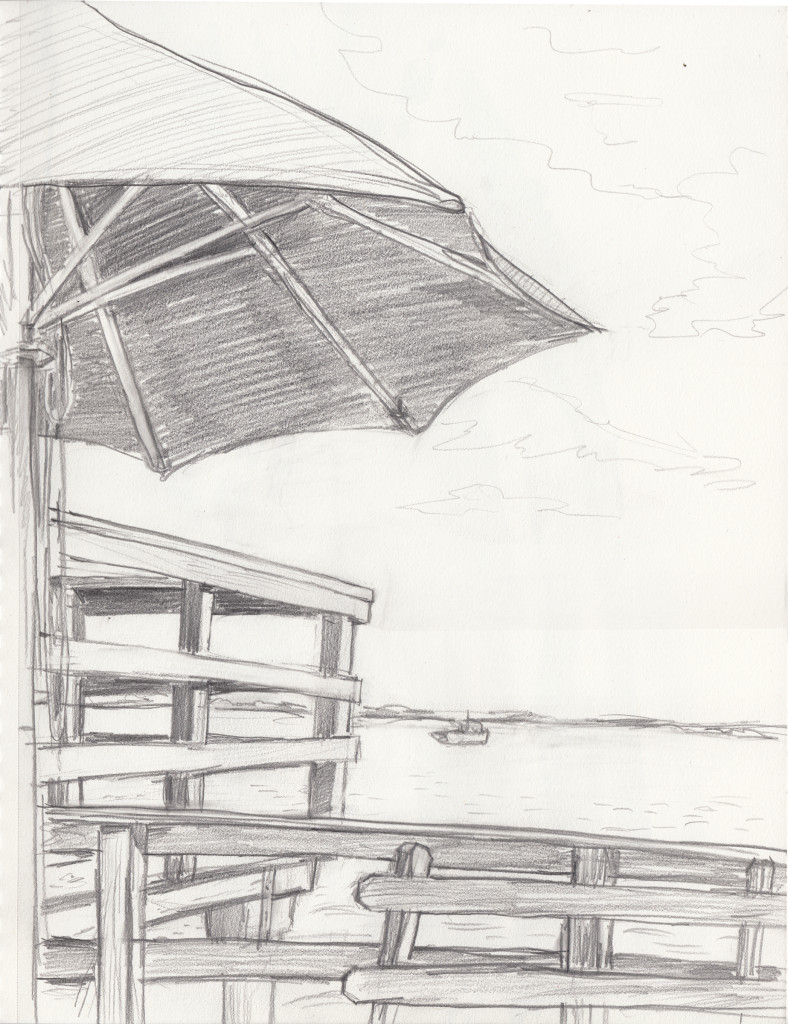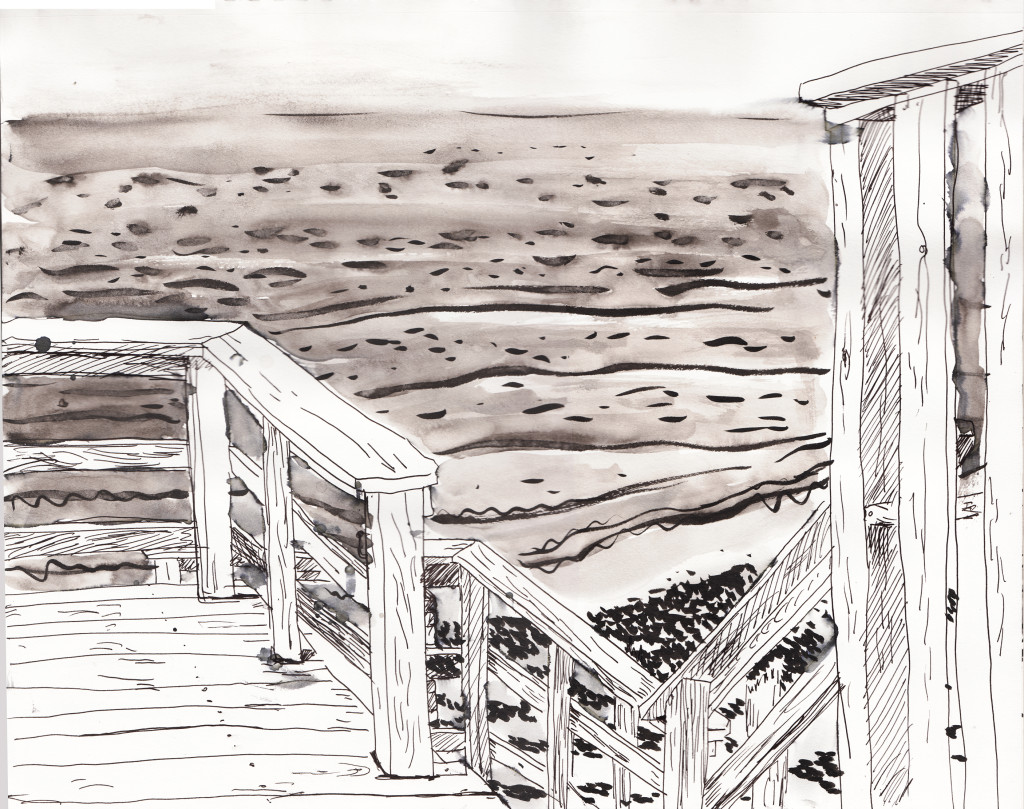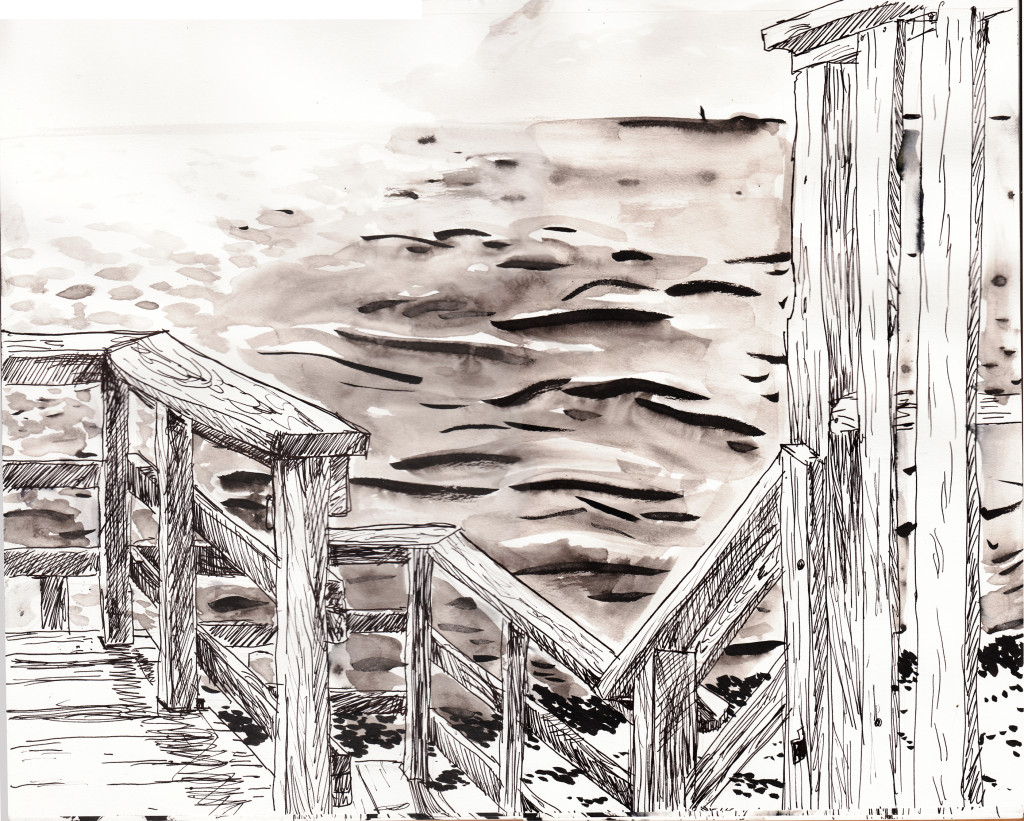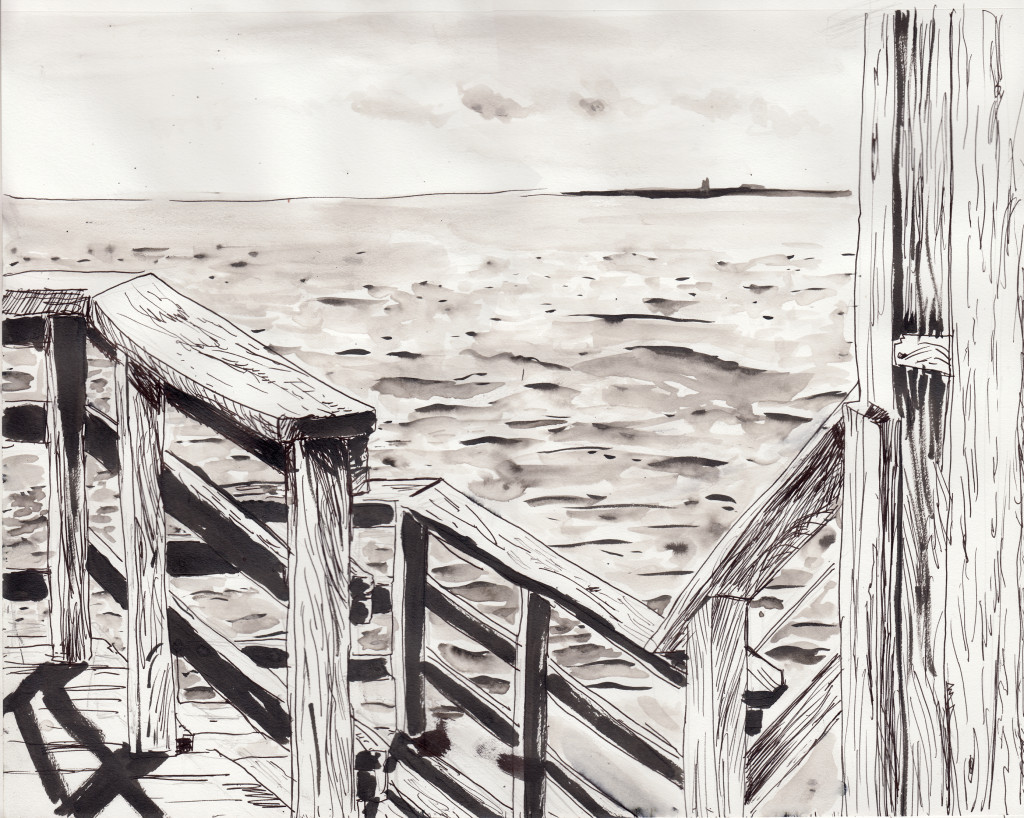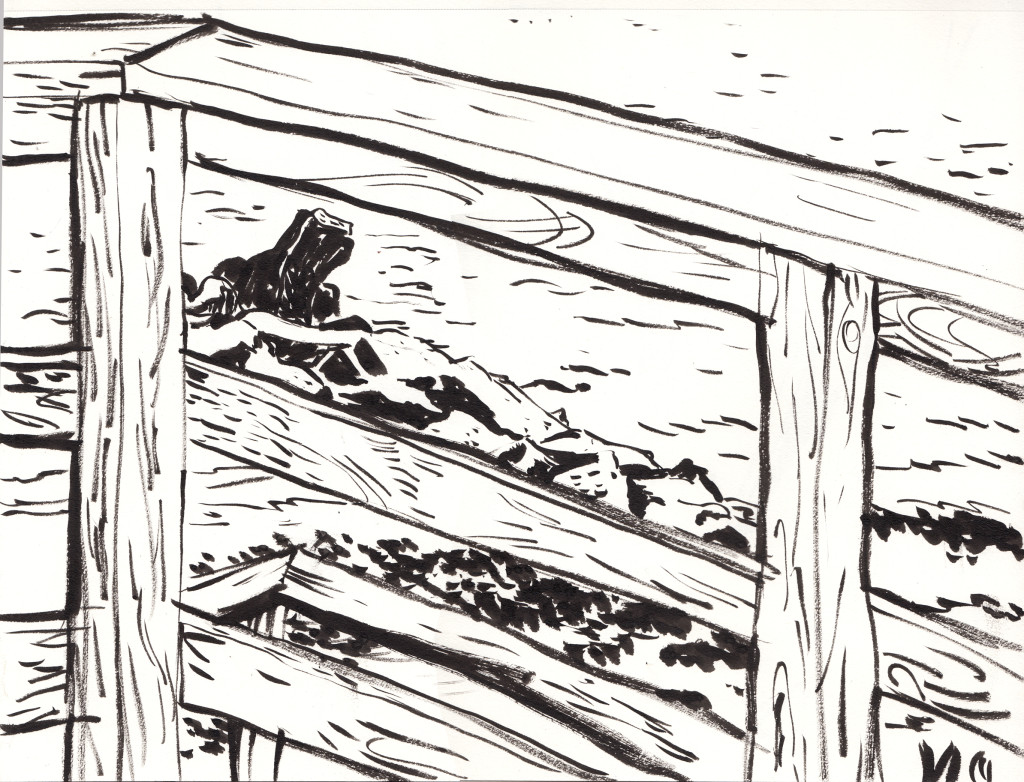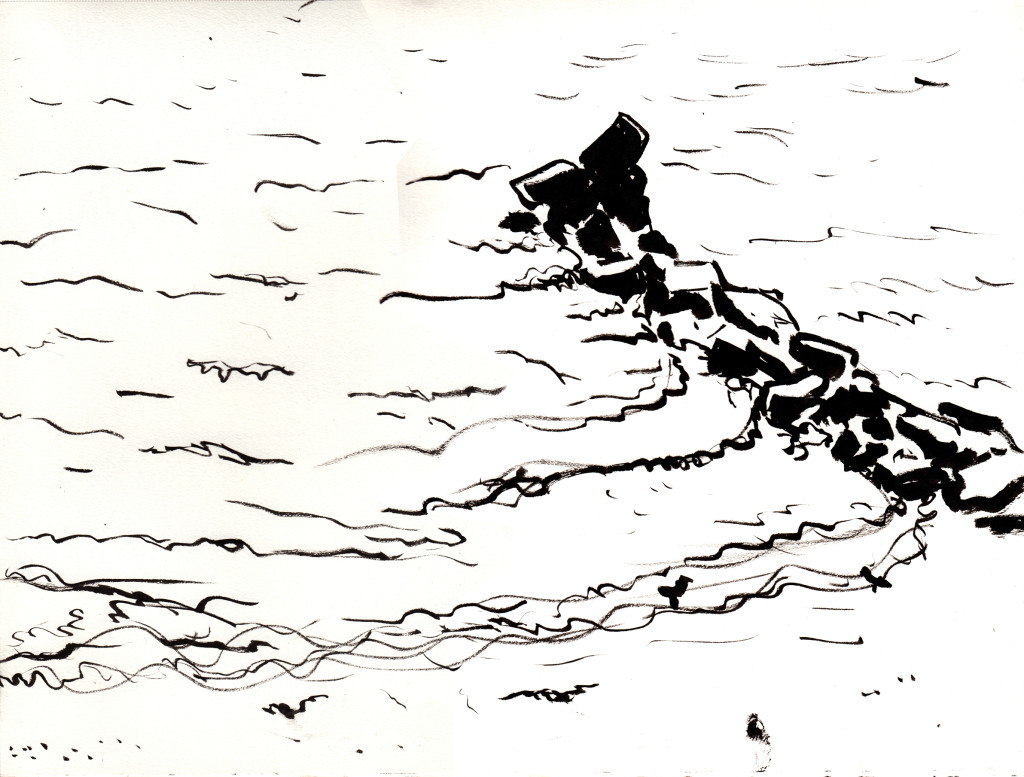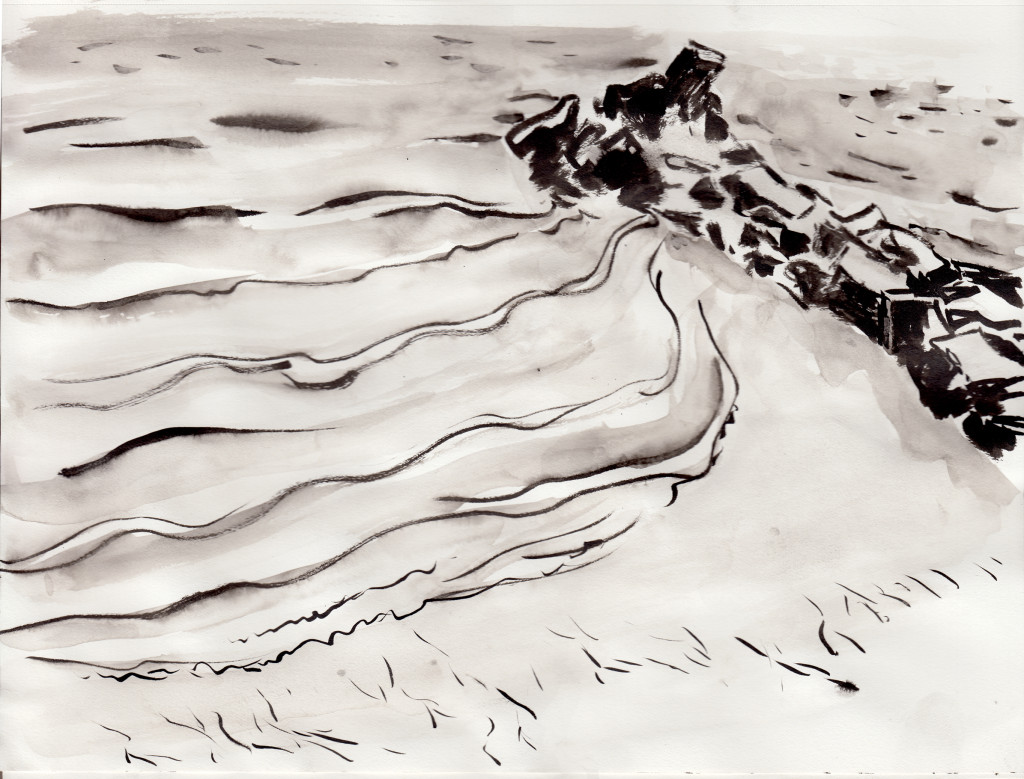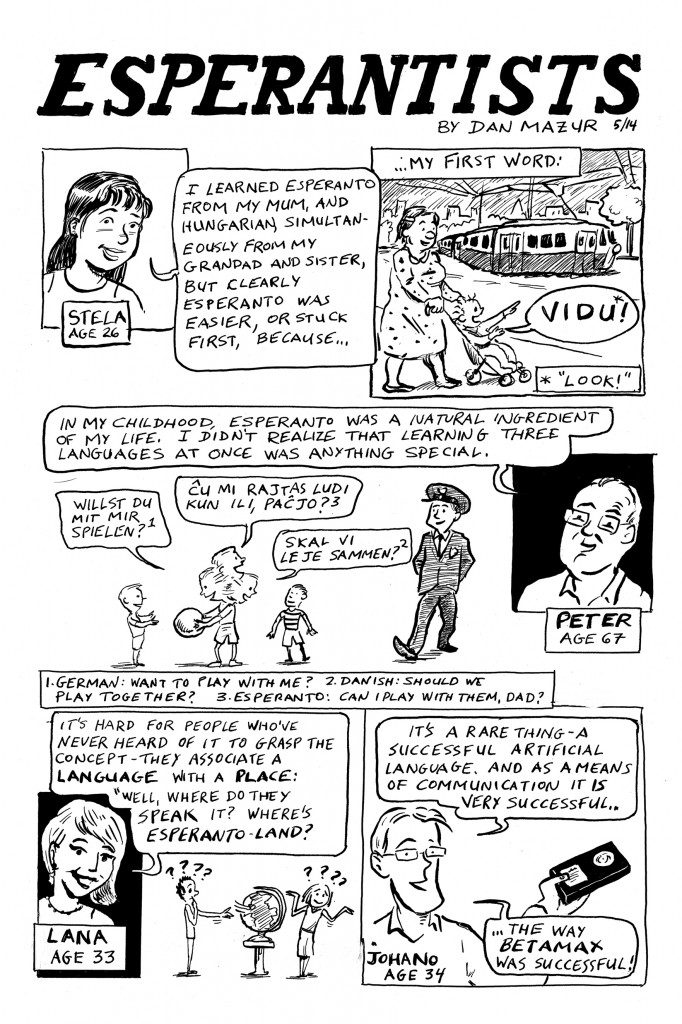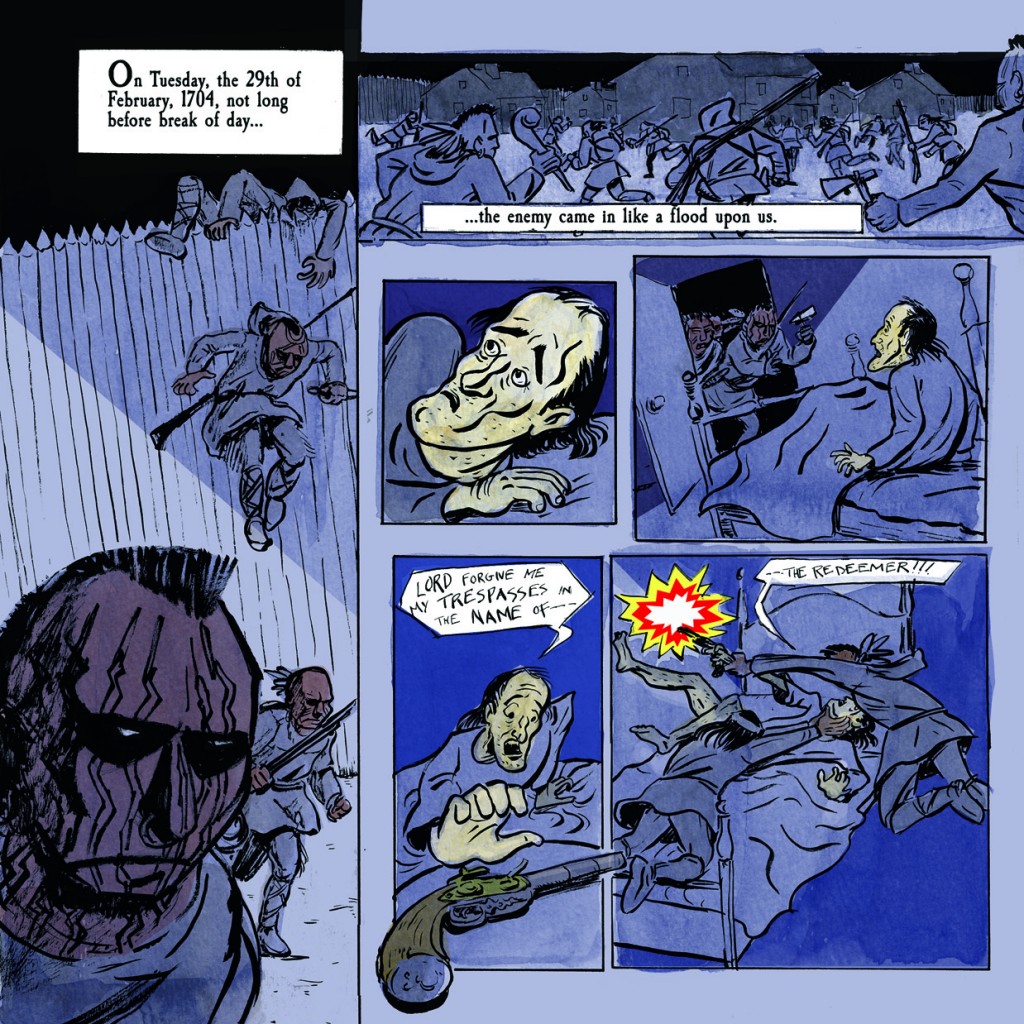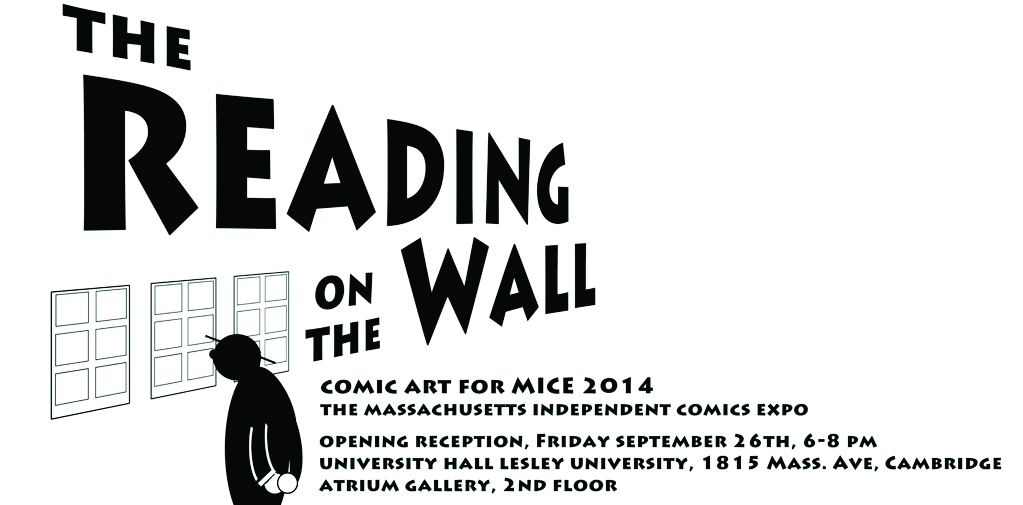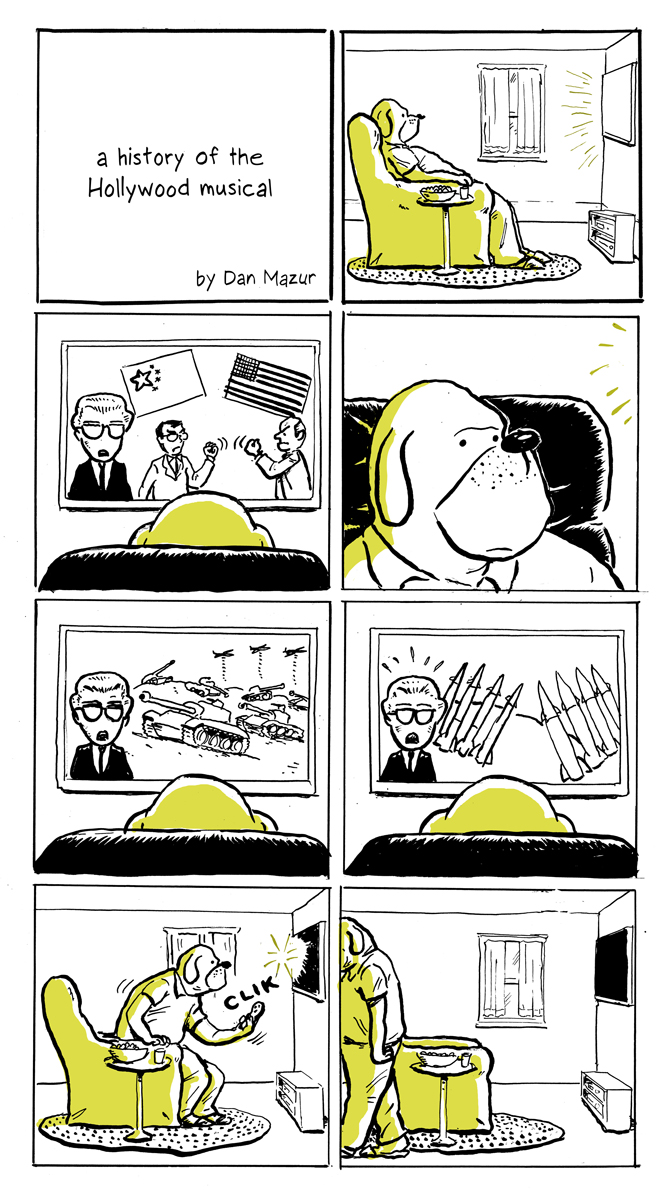Kalle Kniivilä of the Esperanto website Libera Folio, interviewed me about my Esperanto story in SubCultures (if you don’t read Esperanto, try Google translate).  Oh, and: no, I don’t speak Esperanto myself… the interview was originally conducted in English!
Author: Dan
Lives in: Cambridge, Mass.
Does: comics.
Used to live in: Topanga Canyon, California
But grew up in: Cambridge, mostly
Used to do (maybe still?): Screenwriter, journalist, teaches some too
Locust Moon Fest – that was fun!
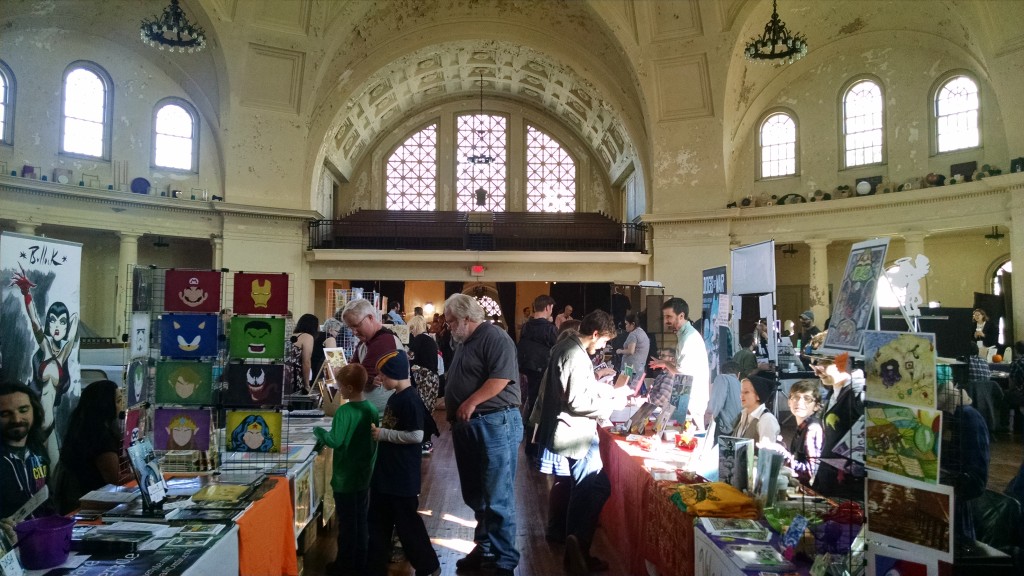
A great comics-themed weekend in Philly, starting with a signing of Comics: a Global History at Penn Book Center. A small crowd, but very interested, asked a lot of questions.
At Locust Moon Comics, Josh O’Neill, Andrew Carl and others were busy hanging the original art from their monumental Little Nemo tribute anthology. A fantastic exhibition it is! And a world-class comics shop.
Saturday, the festival itself. The show had a great vibe, very friendly and jam-packed with great talent (kinda reminded me of MICE). Â And at a beautiful venue, the Rotunda, a down-on-its-heels architectural aristocrat. That’s an enormous pipe organ dominating the rear wall.
I tabled next to Jo Jo Sherrow. The first issue of her mini-comic series Captcha I had bought a few MoCCAs ago, and this was an opportunity to catch up with the next 4 issues. Good stuff, really crazy, about a former mer-cat captured by aliens and living on earth with a bunch of very strange friends, and… words cannot do it justice (at least my words), see for yourself.
On the other side was James Comey, who I’d never met, but whose story follows mine in Colonial Comics… his art is my favorite discovery so far in that book. I was across from Whit Taylor, as well as Mia Schwartz, and one table over past JoJo was Emi Gennis, whose work I’ve also long admired, such as her anthology, Unknown Origins and Untimely Ends. just my cup of tea. Emi specializes in non-fiction, especially true crime, and I bought her mini, the grisly true story, “The Unusual Death of Gregory Biggs.”
Thanks to Jason Rodriguez for letting me tag along to a dinner with some new friends: Bill Campbell, Micheline Hess, John Kim, Eric Battle and Mike Cowgill. 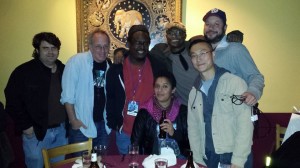
I hate to pick a highlight, but at the after-party, a drawing competition took place, the challenge was to draw the store’s black cat. It started with a head-to-head between Paul Pope and Bill Sinkiewicz, a breathtaking display of graphic facility and imagination. When Pope looked up from his drawing and saw what Sienkiewicz was up to, he said, “whoa… a Jimi Hendrix solo!”
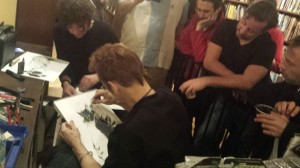
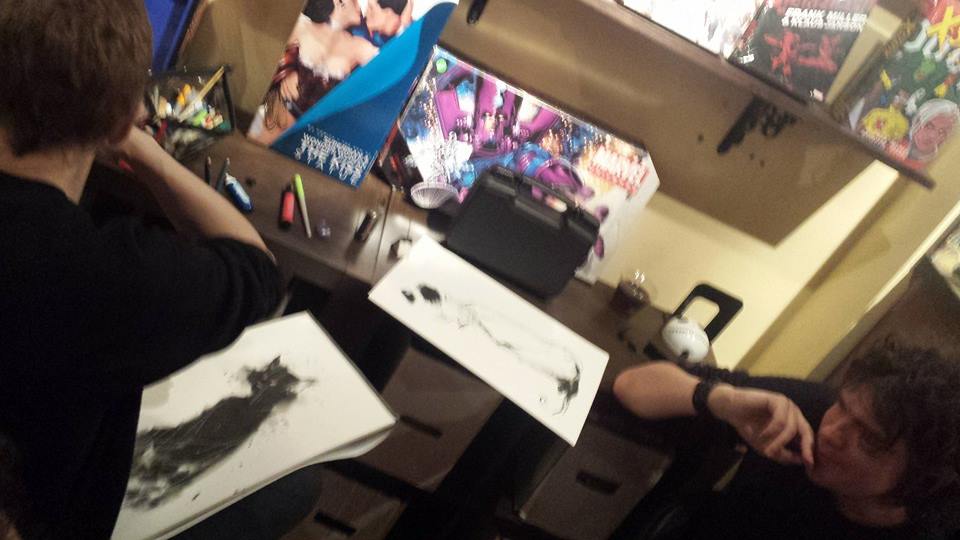
And it didn’t end there, as Dean Haspiel, Gregory Benton, Ron Wimberly and some other talented people whose names I didn’t catch followed with their own tours-de-force.
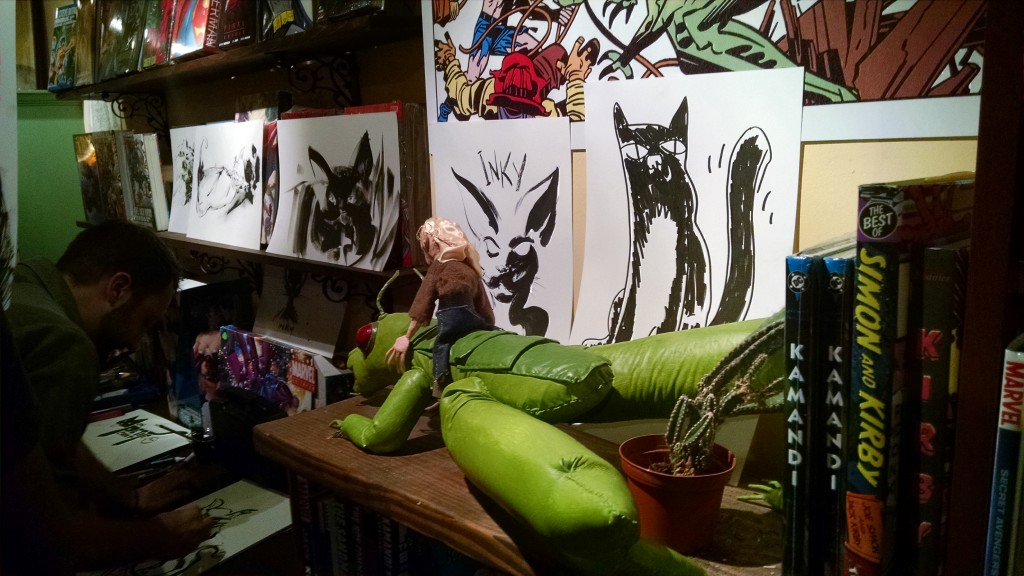
Colonial Comics!
And Eunice Williams is in it!
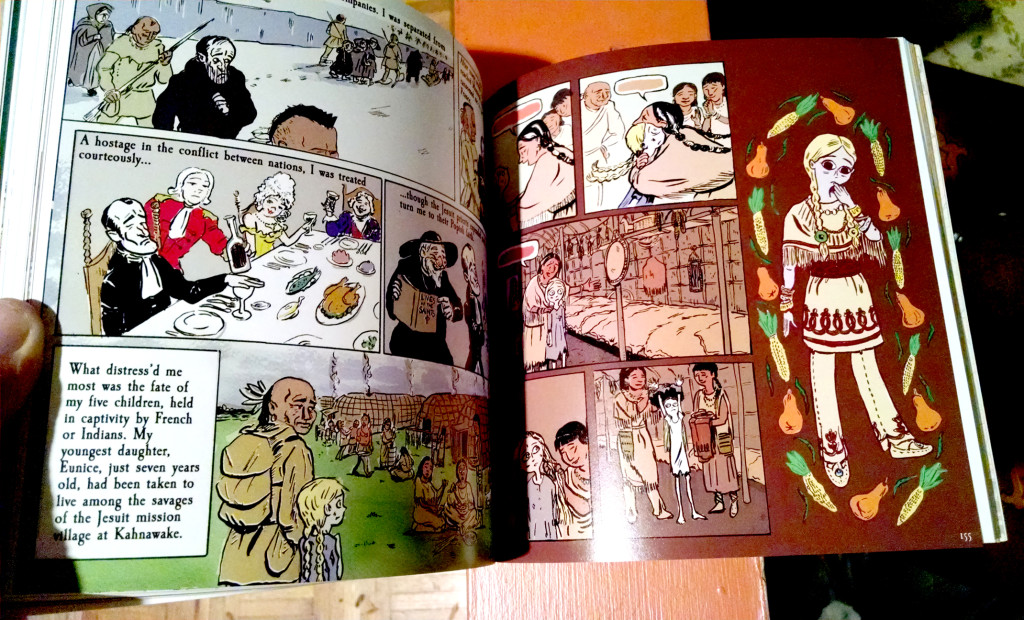
To be more precise, “Captives, the Stories of Eunice and John Williams!”
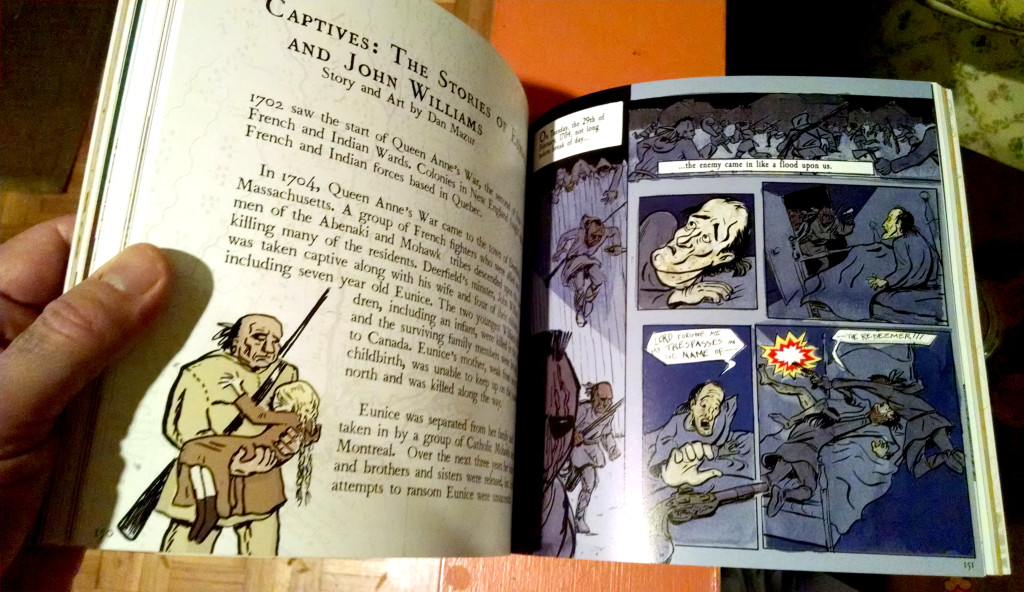
Buy it at your local book shop. Or, if you must, from this mom and pop book-selling website.
Drawings from Provincetown
Portugese comics scholar Pedro Moura did an interview with me and Alexander Danner about Comics: a Global History, for the Comics Alternative website. Â Pedro wrote a review too, for his Portugese blog (Google translate will give you a rough idea of what it says, if you ask nicely!)
I have a story in each of three anthologies making their debut at MICE this year (well one is making its New England debut, the other two are totally legit).
In SubCultures, you will find Esperantists, a non-fiction piece about Esperanto speakers (especially native Esperanto speakers). Â For this story I interviewd 5 Esperanto speakers and intercut their stories, along with a little history, and some Esperanto Fun Facts.
Colonial Comics, vol. 1 will contain Captives: the story of Eunice and John Williams. Much on this site about that one already.
Last but not least, in Hellbound V: the End, I have A History of the Hollywood Musical.  It’s a horror anthology, and my story is certainly off-kilter with the genre. I guess it’s a sort of a Twlight Zone-ish story.  Kind of.  Except with a dog.  I already posted page one, so here’s page two: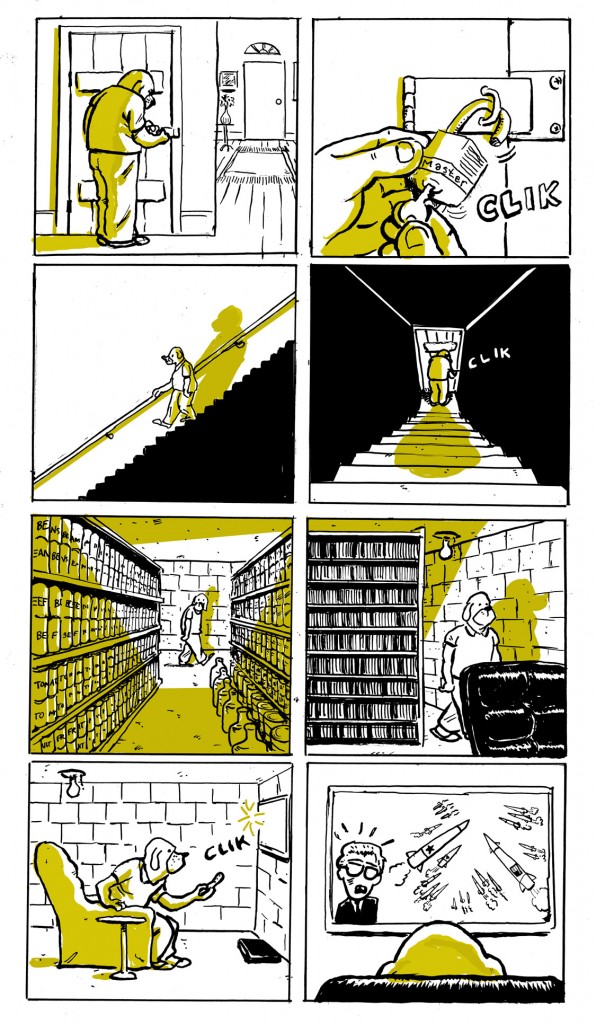 I’ll be at table D11 at MICE, by the way: that’s table 11 in Doucet Hall, named for guess who?  And look at this wonderful map by Shelli Paroline!Â
I’ll be at table D11 at MICE, by the way: that’s table 11 in Doucet Hall, named for guess who?  And look at this wonderful map by Shelli Paroline! 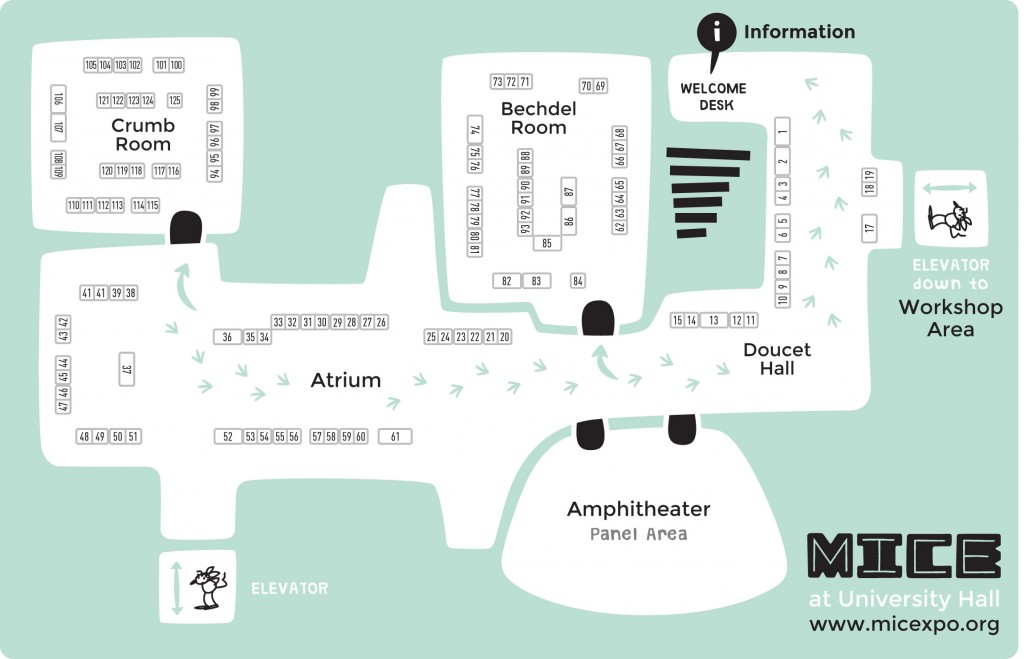
The Reading on the Wall…and more MICE news!
The MICE festivities kick off with an art show reception this Friday!  Come join us… snacks and wine and some great original comic art by Boston-area (mostly) cartoonists and  MICE exhibitors.  Click here for a list of all the artists.
Join the Facebook Event for the opening!
Next weekend, same space: MICE itself! Â The Massachusetts Independent Comics Expo, Saturday Oct 4, 10-6, Sunday Oct 5, 11-4. Â Lots of comics, panels, workshops — free and family-friendly.
And on Sunday October 5th, as a special part of MICE, Comics and the Classroom, a half-day symposium for educators — free of charge and open to all. Â More info here.Â
This is my submission for Hellbound 5: The End. Â No, it’s not really a history of the Hollywood musical. Â Or maybe, yes it is. Â Kind of. Â Here’s a preview of page one:
SubCultures Anthology
As a publisher (of Ninth Art Press), I’m very excited about this project: the SubCultures Anthology.
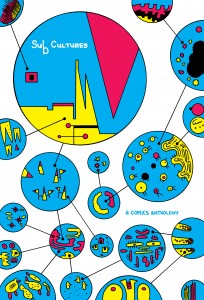
It was conceived and edited by Whit Taylor, and she has put together an outstanding collection of stories, by 36 different creators, about various subcultures.  I’m not only the publisher, I’m a contributor, with a story about Esperanto speakers (focusing on native Esperanto speakers); I’ll  post some more about my contribution soon. Meantime, to se lots of previews and to pre-order the book (it will be physically available in early September), go here.
The book is reviewed on The Comics Bulletin website:
“in Comics: A Global History, 1968 to the Present, [Mazur and Danner] do an admirable job with a nearly impossible task: providing an encyclopedic overview of important comics throughout the world during that era – popular comics and alternative comics, comics from Japan, Europe and the United States, comics from different schools of thought and design, comics using diverse styles, comics presented sometimes in dramatically diverse ways – and Mazur and Danner do so with a smart focus.”

